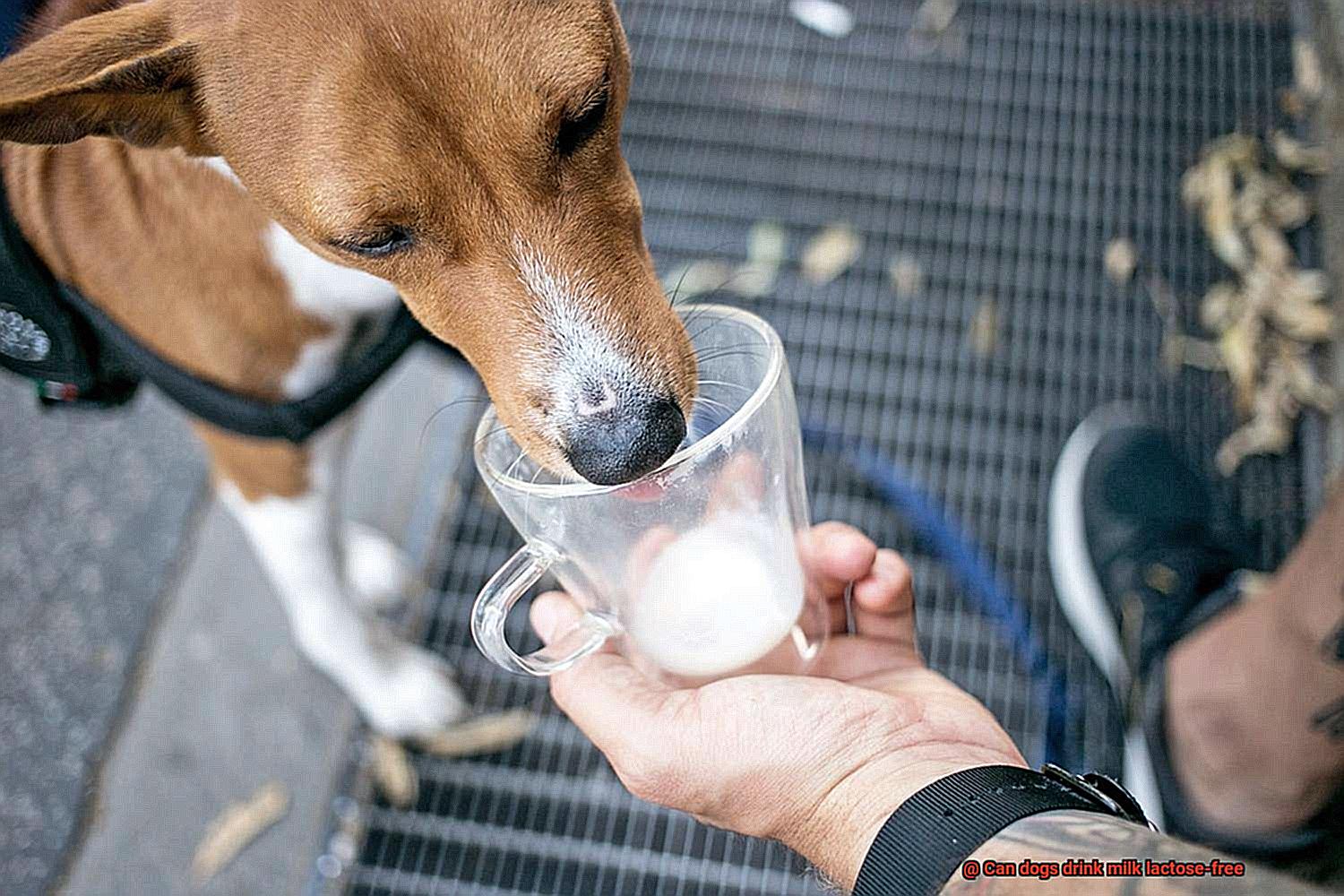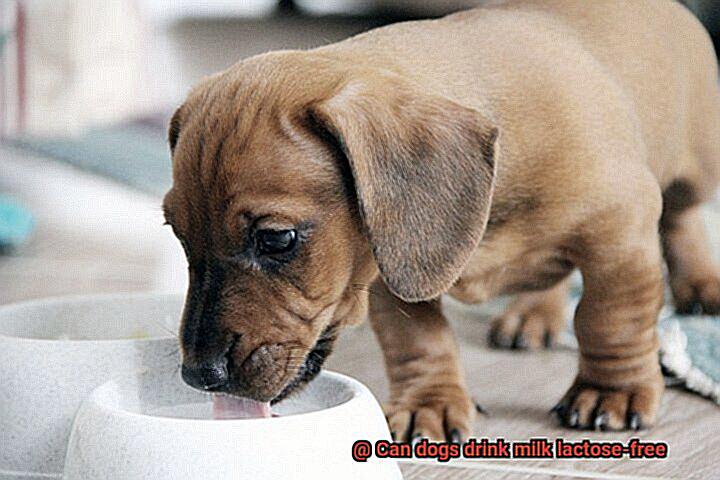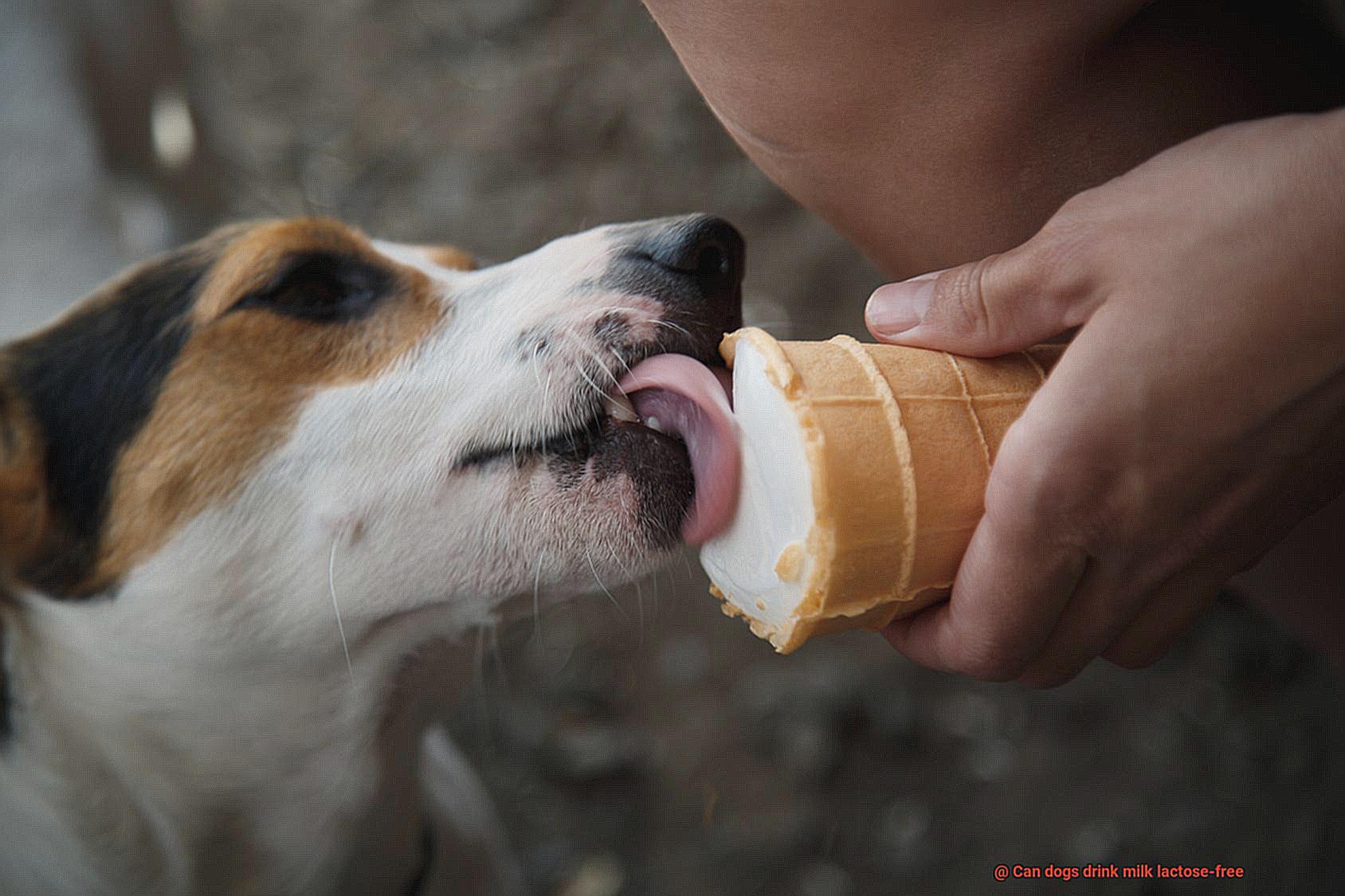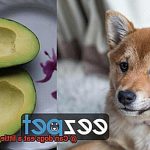Can dogs drink milk lactose-free?
The unbreakable bond between humans and dogs. We’re always on a mission to give our furry pals the best life possible, including a healthy diet. But here’s the million-dollar question: can dogs drink milk? Well, hold onto your leashes because the answer is a resounding yes. However, not all milk is created equal for our four-legged friends.
Enter lactose-free milk – the superstar of today’s discussion. While regular cow’s milk might turn their tummies upside down due to lactose intolerance, lactose-free milk swoops in as the hero with its delicious taste and numerous benefits for our beloved pooches. So grab yourself a cup of joe (or maybe some milk), and let’s dive into the world of lactose-free milk for dogs.
In this blog post, we’ll uncover the wonders of lactose-free milk and how it can boost your dog’s well-being. Prepare yourself for fascinating facts about lactose intolerance in dogs, mouthwatering benefits of this dairy alternative, and handy tips on introducing it into your pup’s diet.
Whether you’re an adoring dog owner searching for a new treat or simply curious about canine nutrition, get ready for an adventure because we’re about to unleash captivating insights into the world of lactose-free milk and its pawsome perks for dogs. Let’s get this tail waggin’.
Can Dogs Drink Milk Lactose-Free?
Contents
- 1 Can Dogs Drink Milk Lactose-Free?
- 2 Benefits of Lactose-Free Milk for Dogs
- 3 Risks of Feeding Lactose-Free Milk to Dogs
- 4 Is It Safe For French Bulldogs to Drink Lactose-Free Milk?
- 5 Nutritional Needs of French Bulldogs
- 6 Alternative Sources of Calcium for French Bulldogs
- 7 How Much Lactose-Free Milk Should I Give My Dog?
- 8 Signs Your Dog is Having an Adverse Reaction to Lactose-Free Milk
- 9 Conclusion
After all, it’s a popular alternative for people who are lactose intolerant. But can dogs drink milk lactose-free? Let’s dive into the research and find out.
Dogs Are Lactose Intolerant
First things first, it’s important to understand that dogs are lactose intolerant. This means they lack the enzyme lactase, which is needed to break down lactose, the sugar found in milk. Without enough lactase, dogs can’t properly digest lactose, leading to gastrointestinal issues like diarrhea and upset stomachs.
Lactose-Free Milk: Is It Safe for Dogs?
Lactose-free milk is cow’s milk that has had the lactose removed or broken down into simpler sugars. While this may make it easier for dogs to digest, it’s still derived from cow’s milk, which can cause other issues for our canine companions. Dogs can develop allergies to cow’s milk proteins or experience digestive upset from the fat content in milk.
Consult Your Veterinarian
Before introducing lactose-free milk to your dog’s diet, it’s crucial to consult with your veterinarian. They can assess your dog’s individual needs and determine if it’s safe and appropriate for them. Your vet may recommend other alternatives or supplements that provide the necessary nutrients without the risks associated with dairy.
Moderation is Key
If you do decide to give your dog lactose-free milk as an occasional treat or supplement, remember that moderation is key. It should never be given in large quantities or as a replacement for water or a balanced diet. Always prioritize fresh water and a nutritionally balanced dog food that meets your pup’s specific dietary requirements.
Watch for Digestive Upset
Keep a close eye on your dog after giving them lactose-free milk. If they show any signs of digestive upset, such as diarrhea or vomiting, it’s essential to discontinue the milk and monitor them for any further symptoms. Every dog is different, and what works for one may not work for another.
In conclusion, while lactose-free milk may be easier for dogs to digest, it is still derived from cow’s milk and may not be suitable for all dogs. It’s always best to consult with your veterinarian before introducing any new food or supplement to your dog’s diet. Remember, fresh water and a balanced diet are the foundation of a healthy and happy pup.
Benefits of Lactose-Free Milk for Dogs
As a dog expert and proud owner of a French Bulldog myself, I understand the importance of providing our furry friends with the best care possible. That’s why today, I want to talk to you about the benefits of lactose-free milk for our adorable Frenchies.
Lactose intolerance is not just a human thing; our French Bulldogs can also experience digestive issues when they consume regular milk. Just like us, they lack the enzyme lactase needed to break down lactose, the sugar found in milk. This can lead to unpleasant symptoms like diarrhea, gas, and bloating. But fear not, my friends. Lactose-free milk is here to save the day.
What Makes Lactose-Free Milk So Pawesome?
- Improved Digestion: One of the paw-some benefits of lactose-free milk for our Frenchies is improved digestion. Since it doesn’t contain lactose, it won’t cause any tummy troubles or make them gassy. This means fewer trips to the backyard for clean-up duty and more time for snuggles and belly rubs.
- Nutritional Value: Our French Bulldogs need all the essential nutrients they can get for optimal health. Lactose-free milk is a great source of protein, which helps them build strong muscles and stay active. It’s also rich in calcium, which keeps their bones and teeth strong as they zoom around the house like little furry tornadoes.
- Hydration Hero: We all know how important it is for our Frenchies to stay hydrated, especially during those hot summer months or when they’re recovering from illness or surgery. Lactose-free milk can be a refreshing and hydrating option for our fur babies who may not drink enough water on their own. It’s time to give them a cool and creamy treat they’ll love.
- Paw-licking Good: Let’s face it, our Frenchies can be picky eaters at times. But lactose-free milk is often more palatable for them than plain old water. If your Frenchie has a reduced appetite due to illness or medication, adding a splash of lactose-free milk to their food or offering it as a tasty treat can entice them to eat and drink the nutrients they need.
- Allergy Relief: Some French Bulldogs may have allergies to regular milk, which can lead to itching, rashes, or tummy troubles. Lactose-free milk is a suitable alternative that eliminates the allergenic component of regular milk while still providing all the essential nutrients our fur babies need to thrive.

Risks of Feeding Lactose-Free Milk to Dogs
We all know how much we love our wrinkly, snorting companions. But when it comes to their diet, there are a few things we need to be mindful of. One question that often arises is whether it’s safe to give lactose-free milk to our Frenchies. Well, let’s dig into the risks and benefits so you can make an informed decision.
Lactose Intolerance: A Common Issue in French Bulldogs
French Bulldogs, like many other breeds, can suffer from lactose intolerance. This means they lack the enzyme lactase, making it difficult for them to digest lactose, the sugar found in regular milk. Without lactase, our furry friends may experience unpleasant digestive issues such as diarrhea, gas, and bloating.
Benefits of Lactose-Free Milk for Lactose Intolerant French Bulldogs
Lactose-free milk is specifically designed to remove or reduce lactose content, making it easier for lactose intolerant dogs to digest. It still provides essential nutrients like calcium while reducing the risk of digestive problems. Plus, it can be a tasty alternative for those picky eaters.
Risks of Feeding Lactose-Free Milk to French Bulldogs
However, even lactose-free milk should be given in moderation to French Bulldogs. While it may cause fewer digestive issues than regular milk, excessive consumption can still lead to tummy troubles. Start by introducing small amounts gradually and monitor your Frenchie for any adverse reactions.
Consult a Veterinarian for Expert Advice
Before making any changes to your Frenchie’s diet, it is crucial to consult with your veterinarian. They will evaluate your dog’s specific needs and recommend suitable alternatives if necessary. Keep in mind that not all French Bulldogs will benefit from lactose-free milk, as individual health conditions and dietary restrictions may require other options.
Is It Safe For French Bulldogs to Drink Lactose-Free Milk?
French Bulldogs are known for their adorable wrinkly faces and playful personalities. As pet parents, we want to provide them with the best care and nutrition possible. But when it comes to milk, French Bulldogs, like all dogs, are lactose intolerant. This means they lack the enzyme lactase necessary to digest lactose, the sugar found in milk. So, is it safe for French Bulldogs to drink lactose-free milk? Let’s dig deeper into this question.
Understanding Lactose Intolerance
Lactose intolerance can cause gastrointestinal issues such as diarrhea, vomiting, and stomach discomfort in dogs. It’s important to recognize the signs of lactose intolerance and avoid feeding your Frenchie any foods that contain lactose. However, lactose-free milk is a suitable alternative for dogs who enjoy the taste of milk but cannot tolerate regular milk due to their lactose intolerance.
What is Lactose-Free Milk?
Lactose-free milk is cow’s milk that has been treated with lactase enzyme to break down the lactose into simpler sugars that dogs can digest without any issues. This process makes it easier for French Bulldogs to enjoy the taste of milk without experiencing any digestive troubles.
Introducing Lactose-Free Milk
When introducing lactose-free milk to your French Bulldog’s diet, it’s important to start with small amounts and observe any adverse reactions or digestive issues. Some French Bulldogs may still have sensitivities or allergies to other components of milk, such as proteins. Therefore, it’s essential to monitor their response and consult with a veterinarian if any concerns arise.
Moderation is Key
While lactose-free milk may be safe for French Bulldogs to consume, it should still be given in moderation as a treat or occasional snack rather than a substitute for their regular diet. Too much of a good thing can still lead to upset stomachs. So, remember to offer lactose-free milk as a special indulgence, keeping your Frenchie’s overall diet and nutritional needs in mind.
Consult with a Veterinarian
As a responsible pet parent, it’s always a good idea to consult with a veterinarian before making any significant changes to your French Bulldog’s diet. They can provide personalized advice based on your Frenchie’s specific health condition and dietary needs. A veterinarian can guide you through different options and help you make informed decisions that keep your furry friend healthy and happy.
Nutritional Needs of French Bulldogs
French Bulldogs are not just cute companions; they also have unique nutritional needs that require special attention. As a proud owner of a French Bulldog, it is crucial to provide them with a well-balanced diet that supports their overall health and addresses their specific dietary requirements. In this article, we will explore the key elements of a healthy diet for French Bulldogs, including protein, fat, carbohydrates, portion control, and hydration.
Protein Power:

Protein plays a vital role in the growth and development of your furry friend’s muscles. Opt for lean meats like chicken, turkey, and fish as excellent sources of protein in their diet. These options are not only delicious but also provide essential amino acids necessary for their overall well-being.
Fabulous Fats:
While fats may sometimes get a bad rap, they are an essential component of your French Bulldog’s diet. Healthy fats, such as omega-3 fatty acids found in fish oil or flaxseed oil, provide energy and promote a glossy coat and healthy skin. So don’t shy away from incorporating these beneficial fats into their meals.
Carb-tastic Choices:
Carbohydrates are a crucial source of energy for French Bulldogs. However, it’s important to choose high-quality carbohydrates that come from whole grains, fruits, and vegetables. These options provide fiber, vitamins, and minerals to support their digestive system and overall health.
Portion Control:
French Bulldogs have a tendency to overeat, which can lead to weight gain and associated health issues. To curb this habit, consider feeding them multiple small meals throughout the day instead of one large meal. This approach helps prevent overeating while keeping them satisfied throughout the day.
Hydration is Key:
Just like humans, water is essential for French Bulldogs to stay hydrated and maintain optimal health. Ensure that fresh water is always available for them, especially during warmer months or after physical activity. Keeping them well-hydrated supports their digestion, joint health, and overall well-being.
Seek Expert Advice:
To provide the best diet for your French Bulldog’s specific needs, it is always wise to consult with a veterinarian or professional animal nutritionist. They can assess your dog’s individual requirements and guide you on the appropriate amount of food and the best balance of nutrients for their overall health.
Conclusion:
As responsible pet owners, it is our duty to provide our French Bulldogs with the best possible nutrition to ensure their well-being. By focusing on high-quality protein, healthy fats, carbohydrates from whole grains, portion control, and proper hydration, we can meet their unique nutritional needs.
Remember, consulting with professionals and keeping an eye on your furry friend’s overall health will help you tailor their diet to suit their specific requirements. Let’s nourish our French Bulldogs with love and a nutritious diet for a happy and healthy life together.
Alternative Sources of Calcium for French Bulldogs
French Bulldogs, like all dogs, need calcium for healthy bone growth and maintenance. However, many French Bulldogs are lactose intolerant, making traditional sources of calcium like milk unsuitable for them. In this comprehensive guide, we will explore alternative sources of calcium that are safe and beneficial for French Bulldogs.
Yogurt:
Plain, unsweetened yogurt is a great alternative source of calcium for French Bulldogs. It contains lower levels of lactose compared to milk and can be better tolerated by lactose-intolerant dogs. Offer a small amount as a treat or mix it with their regular food to provide them with the necessary calcium.
Cottage Cheese:
Similar to yogurt, cottage cheese is another low-lactose option packed with calcium. It can be included in your French Bulldog’s diet as a topping or mixed into their meals for added nutrition.
Green Leafy Vegetables:
Kale, broccoli, and spinach are excellent sources of calcium for French Bulldogs. These vegetables can be cooked or pureed and added to your dog’s regular meals for a healthy boost of calcium. Remember to remove any harmful parts, such as the stems from spinach, before feeding it to your furry friend.
Fruits:
While not as high in calcium as dairy products or vegetables, certain fruits like oranges and tangerines contain small amounts of this mineral. Including these fruits in your French Bulldog’s diet can provide additional nutritional benefits.
High-Quality Commercial Dog Foods:
Many commercial dog foods include added calcium to meet the nutritional needs of dogs. Opt for high-quality dog food that provides adequate amounts of this essential mineral. Look for brands that use real meat as the primary ingredient and have specific formulas for small breed dogs like French Bulldogs.
Consult a Professional:

Every French Bulldog is unique, so it’s crucial to consult with a veterinarian or canine nutritionist to determine the best alternative sources of calcium for your furry friend. They can assess your dog’s specific dietary needs based on factors such as age, health condition, and activity level.
How Much Lactose-Free Milk Should I Give My Dog?
If you’re wondering how much lactose-free milk you can safely give your adorable Frenchie, you’ve come to the right place. As an expert in dog nutrition, I’m here to guide you through the dos and don’ts of adding lactose-free milk to your pup’s diet.
Size Matters: Tailoring Serving Sizes
French Bulldogs are small but mighty, so their lactose-free milk servings should be adjusted accordingly. Here’s a handy table to help you determine the appropriate amount based on your Frenchie’s weight:
Frenchie Weight Lactose-Free Milk Serving Size
Under 20 pounds 1-2 tablespoons per day
20-50 pounds 1/4 to 1/2 cup per day
Over 50 pounds 1/2 to 1 cup per day
Remember, these serving sizes are general guidelines. Always consult with your veterinarian to ensure it aligns with your Frenchie’s specific dietary needs.
Health Considerations: Listen to Your Frenchie’s Tummy
While lactose-free milk is generally safe for dogs, some pups may still have sensitivities or allergies. Watch out for signs of digestive upset, such as diarrhea, vomiting, bloating, or excessive gas. If your Frenchie experiences any of these symptoms, it’s best to avoid lactose-free milk altogether.
Treat, Don’t Repeat: Moderation is Key
Lactose-free milk should only be given as an occasional treat rather than a regular part of your Frenchie’s daily diet. Remember, they are primarily carnivores, and their digestive systems aren’t designed to process lactose efficiently. So, reserve the lactose-free milk for special moments and pamper your Frenchie with other delicious and nutritious options.
Balanced Diet is Essential
While lactose-free milk can be a tasty addition to your Frenchie’s diet, it should never replace water or a balanced canine diet. Ensure your Frenchie receives a well-rounded meal consisting of meat-based proteins, healthy fats, and carbohydrates specifically formulated for their nutritional needs.
Conclusion:
Voila. Now you know just how much lactose-free milk you can safely give your French Bulldog. Remember to consider their size, health, and dietary restrictions. And always consult with your veterinarian for expert advice tailored to your unique Frenchie.
Signs Your Dog is Having an Adverse Reaction to Lactose-Free Milk
If you’re thinking of treating your French Bulldog to some lactose-free milk, hold your horses. While it may seem like a safe and tasty option, some Frenchies might have an adverse reaction to this creamy delight. To help you keep your four-legged friend healthy and happy, I’m here to spill the beans on the signs that your Frenchie is not handling lactose-free milk like a champ. Let’s dive in.
Gut Troubles Galore:
When your Frenchie’s tummy starts rumbling after slurping down a bowl of lactose-free milk, it’s time to pay attention. Keep an eye out for telltale signs such as diarrhea, vomiting, gas, bloating, and abdominal pain. These are red flags that their sensitive digestive system is not coping well with the milk.
Appetite Amiss:
Is your Frenchie suddenly turning their nose up at their regular meals? Is their once voracious appetite now as elusive as a squirrel in the park? Changes in appetite can be a clear indicator that they’re experiencing discomfort from lactose-free milk. Don’t ignore those puppy-dog eyes – it’s time to switch up their treat options.
Allergies Afoot:
Just like humans, our furry friends can have allergies too. Some Frenchies may develop an allergic reaction to the proteins in milk, even if it’s lactose-free. Watch out for itching, hives, swelling (not the cute kind), difficulty breathing, or even collapsing – these signs scream “allergic reaction.” If any of these symptoms arise, rush your Frenchie to the vet pronto.
Behavioral Blues:
Your Frenchie might not speak human language (yet.), but they can communicate their discomfort through their behavior. Restlessness, agitation, pacing, or whimpering can all be signs that lactose-free milk is not sitting well with them. Keep an eye on their behavior and give them extra TLC if they show signs of distress.
Dehydration Danger:
When the tummy troubles kick in, your Frenchie might experience severe diarrhea or vomiting. These nasty symptoms can lead to dehydration, so it’s crucial to look out for signs such as dry gums, sunken eyes, lethargy, and decreased skin elasticity. If you suspect dehydration, don’t delay – seek veterinary care immediately.
P1fEywMTvuk” >
Conclusion
In conclusion, dogs can indeed drink lactose-free milk.
It provides a safe and nutritious alternative for dogs who may be lactose intolerant. By removing the lactose, which is the sugar found in regular milk, lactose-free milk allows dogs to enjoy the benefits of dairy without any digestive discomfort.
Just remember to introduce it gradually into their diet and monitor for any adverse reactions.




